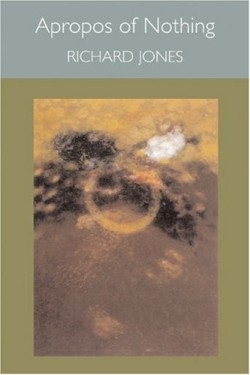Apropos of Nothing
These poems offer an everyday world made strange by yearning, attention, and what is either a delightfully whimsical invention or some curious acquaintances. Is his endodontist really a “sly Buddha / teaching the noble truth of suffering”? Does his nurse really tell him that he’d have done better to ponder death and “scrutinize the way of all flesh”? No matter—in the poem it is so, and “The First Noble Truth” closes with the sort of beauty that makes one wince: “Then he asks if there is pain. / ‘Yes,’ I say, ‘exquisite and clarifying.’”
The author of eleven books and for twenty-five years the editor of Poetry East, Jones has mastered a poetic voice that is casual yet resonant, capable of swinging from ordinary events to metaphysical speculations and back again seemingly without effort. The occasion might be finding dead birds near the house, as in “The Sparrow,” or stopping next to a car with a booming “Subwoofer”—whose driver “wears a face of serenity, like a monk.”
Sometimes the tone is light, as in “The Diner,” a surrealistically literate place (at least for this country) where the cook and dishwasher “argue the relative merits / of Rilke’s Elegies / against Eliot’s Four Quartets,” and even the young lovers commune over the love poems of Pablo Neruda. Other poems are more serious, including the moving “Help,” which honors the poet’s aging father and ends beautifully: “Soon my father’s life // will be motes of dust drifting in light, / and his spirit will be as a piece of thread / slipping easily through the eye of a needle.”
Writing poems that are accessible yet complex, clear but not shallow, is not at all simple. Among Jones’s contemporaries, poets like Ted Kooser and Stephen Dunn come to mind as working in a similar mode, and so does Kenneth Rexroth, from an earlier generation. But the sparse, sharp, humane language of these poems is distinctive. Mostly they are short—a page, two at most—but the five-page narrative “The Caravan” is an intriguing exception. It tells of an encounter with a reflective traveler whose dying wife makes his conversation with the narrator even more poignant: the old man asks what the narrator has learned, what he wants from life, and after admitting that “all my endeavors have been nothing,” he offers: “Wisdom, I say, and mercy.” But the old man insists that he has forgotten the most important thing: “the main virtue, / love.”
This press has a long history of publishing poetry that offers both beauty and wisdom. Apropos of Nothing is a worthy addition to their distinguished catalog.
Reviewed by
Jeff Gundy
Disclosure: This article is not an endorsement, but a review. The publisher of this book provided free copies of the book to have their book reviewed by a professional reviewer. No fee was paid by the publisher for this review. Foreword Reviews only recommends books that we love. Foreword Magazine, Inc. is disclosing this in accordance with the Federal Trade Commission’s 16 CFR, Part 255.

